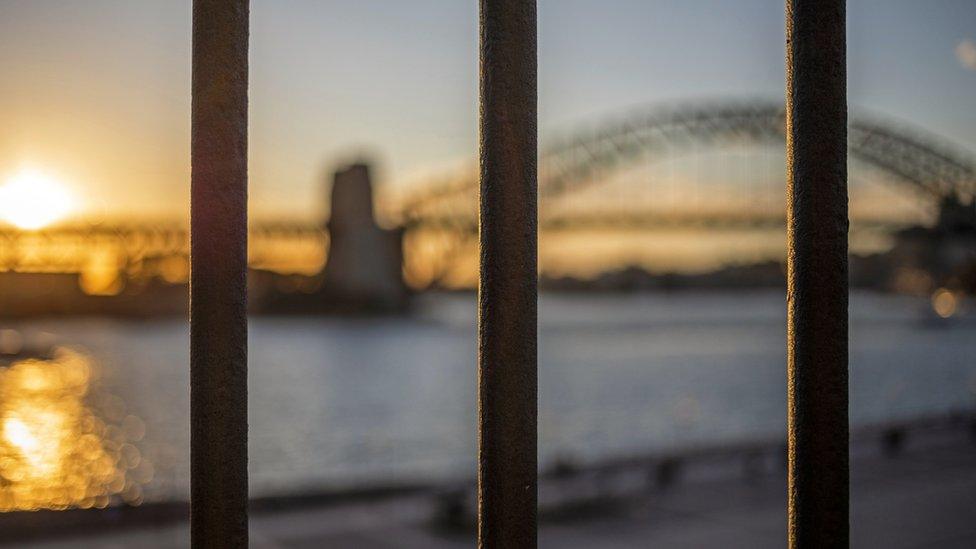Covid: Anger over Australian travel restrictions
- Published
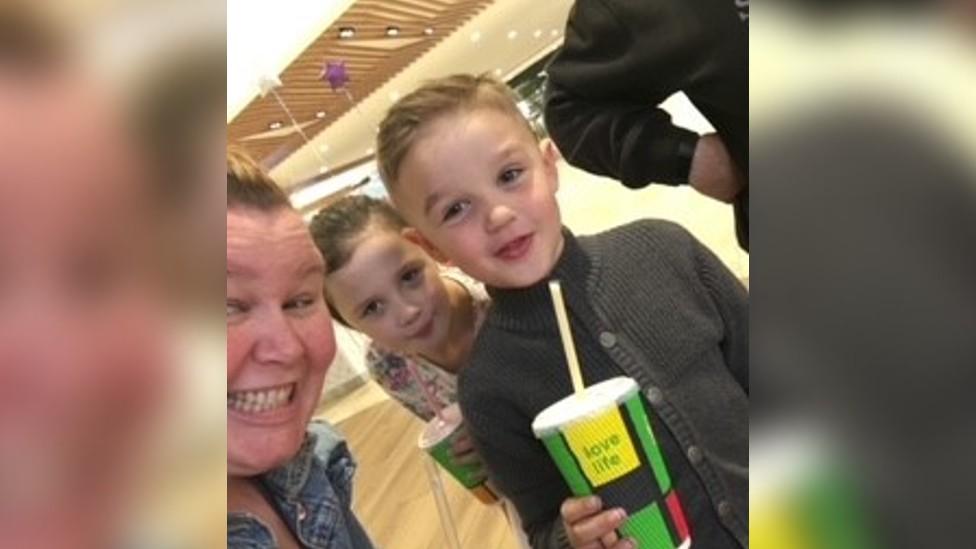
Leanne, pictured with her niece and nephew, has been unable to visit Australia since May 2019
An Australian woman has spoken of her anger at not being able to visit her family due to Covid-19 restrictions.
Leanne Stokes, who lives in West Bromwich, gave birth to twin boys in April 2020 but has been unable to introduce them to family after Australia closed its borders.
"I never thought I would be locked out of my country," she said.
It comes after English expats living in Australia spoke of feeling "trapped" because of the travel restrictions.
Ms Stokes, 36, first moved to England seven years ago to be with her partner Jamie and due to being pregnant with her twins and the pandemic has not been to visit her parents Bryan and Joye, who live in Pinjarra, Western Australia, since May 2019.
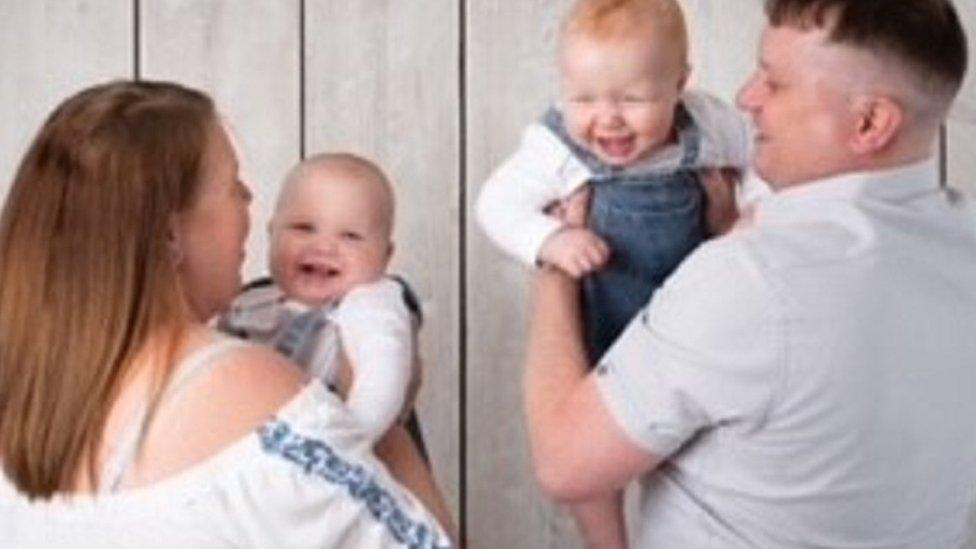
Leanne has been unable to introduce her twin sons to her family
They had planned to visit after the boys' first vaccinations, she said, but as yet have no idea when they will be able to travel.
The government said entry to Australia is currently closed to most arrivals, external but Australian citizens and returning permanent residents, plus their immediate family members are permitted to enter Australia. All international travellers entering Australia need to undertake a mandatory 14-day quarantine at a designated facility.
But, it said border rules including eligibility criteria can change quickly so travellers should prepare for disruptions and Ms Stokes said she is worried about how the family could be affected if travel rules change once they arrived in Australia.
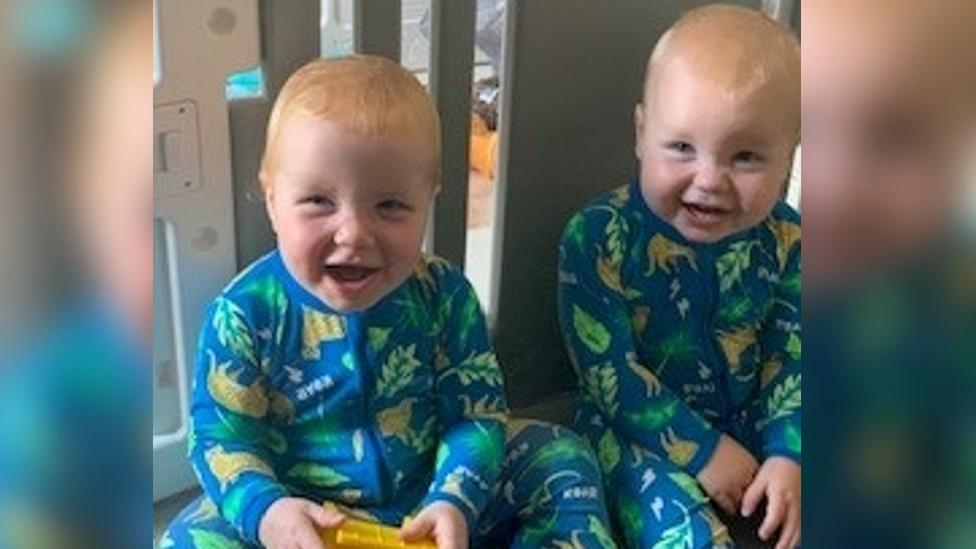
Leanne's sons are now 18 months old
"There was an article the other day saying they were looking at opening the borders around Christmastime," she said.
"Flights are going to go through the roof. They are still making us quarantine and they are choosing the hotels which can be up to £3,000.
"By that stage the boys will be about 20 months and I don't fancy two weeks in one small hotel room with two 20-month-olds."
In Australia, cases so far total over 82,000, and total deaths at just over 1,000. But about half the population is currently in lockdown due to outbreaks in the cities of Sydney, Melbourne and Canberra, with the Delta variant causing cases to rise more rapidly and the government has been criticised for a slow rollout of the vaccine.
The government wants to vaccinate 70-80% of the population over 16 to exit lockdown, with currently only about 36% of Australians over 16 currently fully vaccinated.
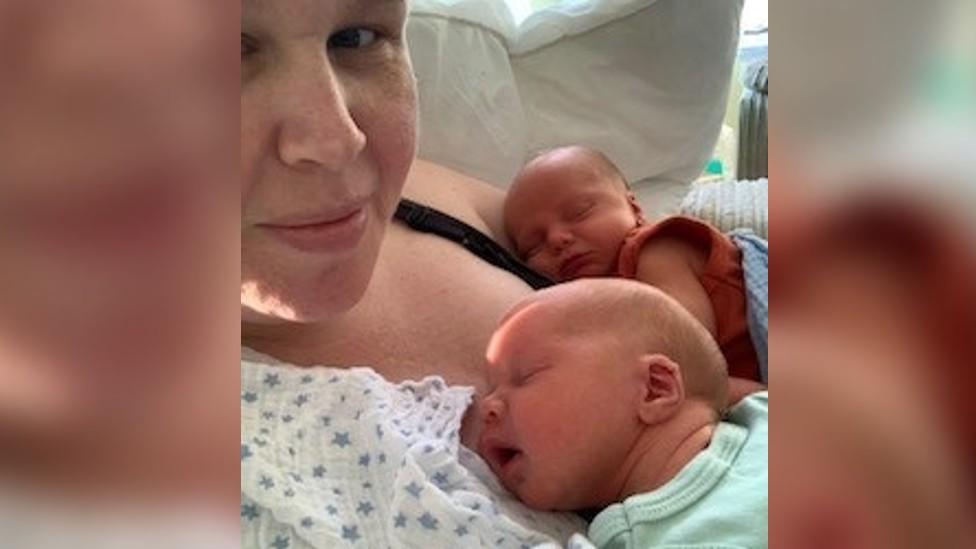
Ms Stokes said she feels "guilty" for living so far away
Her parents regularly video call and were able to see one of the twins take his first steps, but Ms Stokes said she feels "guilty" for choosing to live so far away from her family
"I chose to live here and have my babies here but I never thought I would be trapped and locked out of my own country for my boys to not have the best of both worlds," she said
"I'm scared that when we get to go home the boys won't enjoy it as they will be not sure of all the people as they never got that bond at the start.
"I think I've gone the past the sad stage, it is more like it is an anger, I've never felt so trapped, I can't go home."

Follow BBC West Midlands on Facebook, external, Twitter, external and Instagram, external. Send your story ideas to: newsonline.westmidlands@bbc.co.uk , external
Related topics
- Published15 September 2021
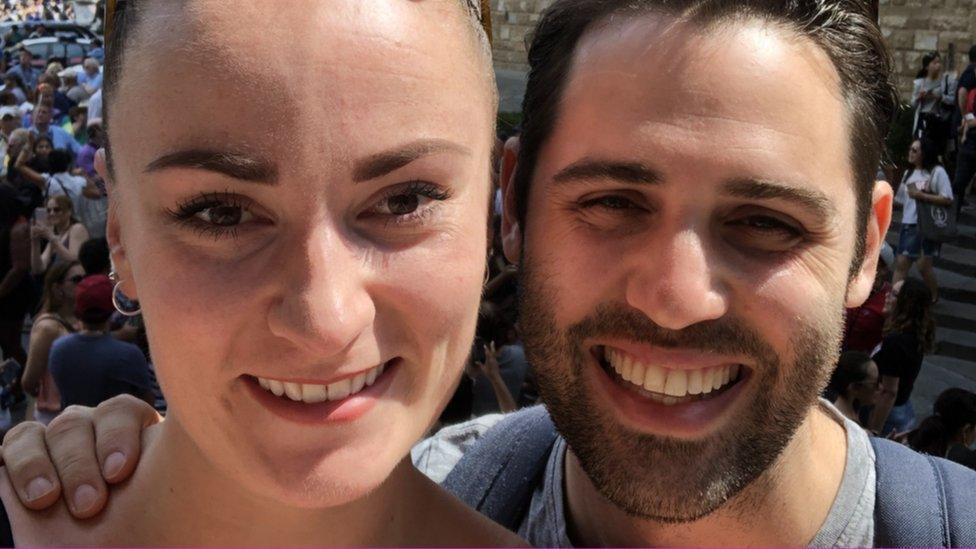
- Published11 September 2021
